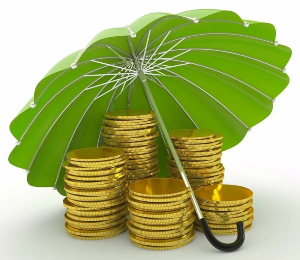Getting a personal loan in today’s economy
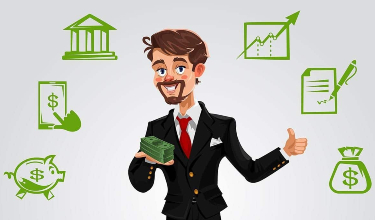 Thanks to a bad economy, lenders are running scared. Even though there are some signs of economic recovery, currently most lenders are not lessening any credit requirements for most personal loans. When many people defaulted on their loans last year, many lenders tightened requirements, making it harder for folks with dings on their credit to qualify for most loans – especially unsecured loans. Now, even though the economy is recovering slowly, demand for loans is low (that means that fewer people are borrowing). Despite this, lenders are not necessarily making it easier for people to secure loans. At the same time, they are not making loan requirements more demanding.
Thanks to a bad economy, lenders are running scared. Even though there are some signs of economic recovery, currently most lenders are not lessening any credit requirements for most personal loans. When many people defaulted on their loans last year, many lenders tightened requirements, making it harder for folks with dings on their credit to qualify for most loans – especially unsecured loans. Now, even though the economy is recovering slowly, demand for loans is low (that means that fewer people are borrowing). Despite this, lenders are not necessarily making it easier for people to secure loans. At the same time, they are not making loan requirements more demanding.
If you need a personal loan right now, you will need very good credit. The tough standards in place during last year are still in place. Over the next year or two, it is possible that credit requirements will loosen somewhat, making bad credit loans and unsecured loans easier to get. For now, if you need a loan be sure to check out our guide to weathering the credit crisis. Improve your credit as much as you can and apply for a loan. If your credit needs a lot of work and you need cash for an emergency, keep in mind that payday loans are still plentiful and easy to get. Although they may be more expensive than traditional loans, they are a good option to have in an emergency.…
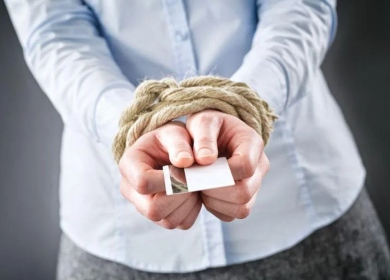 Getting out of debt is vital if you want to save money, develop a healthy financial life, and store up good savings. For many people, however, getting rid of debt is very difficult, and it seems that after effort, debts remain. There are many reasons for this:
Getting out of debt is vital if you want to save money, develop a healthy financial life, and store up good savings. For many people, however, getting rid of debt is very difficult, and it seems that after effort, debts remain. There are many reasons for this: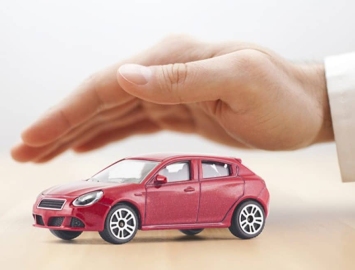 Car insurance varies widely and there are so many options available that it can be hard to determine what insurance is right for you. You don’t want to be underinsured but you also don’t want to pay more for insurance you do not need. The first thing you will want to consider are options. All states require liability insurance, a coverage that covers damages to the other car involved in an accident. However, you may want to protect your car as well. If you rely on your car, have a car loan, or have a newer or more valuable car, you will want comprehensive and collision coverage for your own car. Comprehensive insurance covers theft, vandalism, and other non-accidental damage. Collision insurance covers your costs for repairing or replacing your car in the event of an accident. How much coverage you should get will depend on the value of your car. If you have a newer car or a car loan, you may also want to get uninsured motorist coverage, which covers you in the event that you are in an accident with someone who does not have adequate coverage.
Car insurance varies widely and there are so many options available that it can be hard to determine what insurance is right for you. You don’t want to be underinsured but you also don’t want to pay more for insurance you do not need. The first thing you will want to consider are options. All states require liability insurance, a coverage that covers damages to the other car involved in an accident. However, you may want to protect your car as well. If you rely on your car, have a car loan, or have a newer or more valuable car, you will want comprehensive and collision coverage for your own car. Comprehensive insurance covers theft, vandalism, and other non-accidental damage. Collision insurance covers your costs for repairing or replacing your car in the event of an accident. How much coverage you should get will depend on the value of your car. If you have a newer car or a car loan, you may also want to get uninsured motorist coverage, which covers you in the event that you are in an accident with someone who does not have adequate coverage.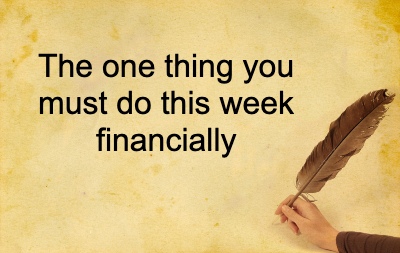 If you don’t already have a buffer fund or an emergency fund, please get one this week. Few things have the power of an emergency fund, and this is a step you can take financially in minutes. Today, determine one thing you can give up this week – maybe you can rent a movie or borrow one from the library. Maybe for one week, you can avoid dining out, getting fast food, or entertainment costs. Put the money you save into your emergency fund.
If you don’t already have a buffer fund or an emergency fund, please get one this week. Few things have the power of an emergency fund, and this is a step you can take financially in minutes. Today, determine one thing you can give up this week – maybe you can rent a movie or borrow one from the library. Maybe for one week, you can avoid dining out, getting fast food, or entertainment costs. Put the money you save into your emergency fund.